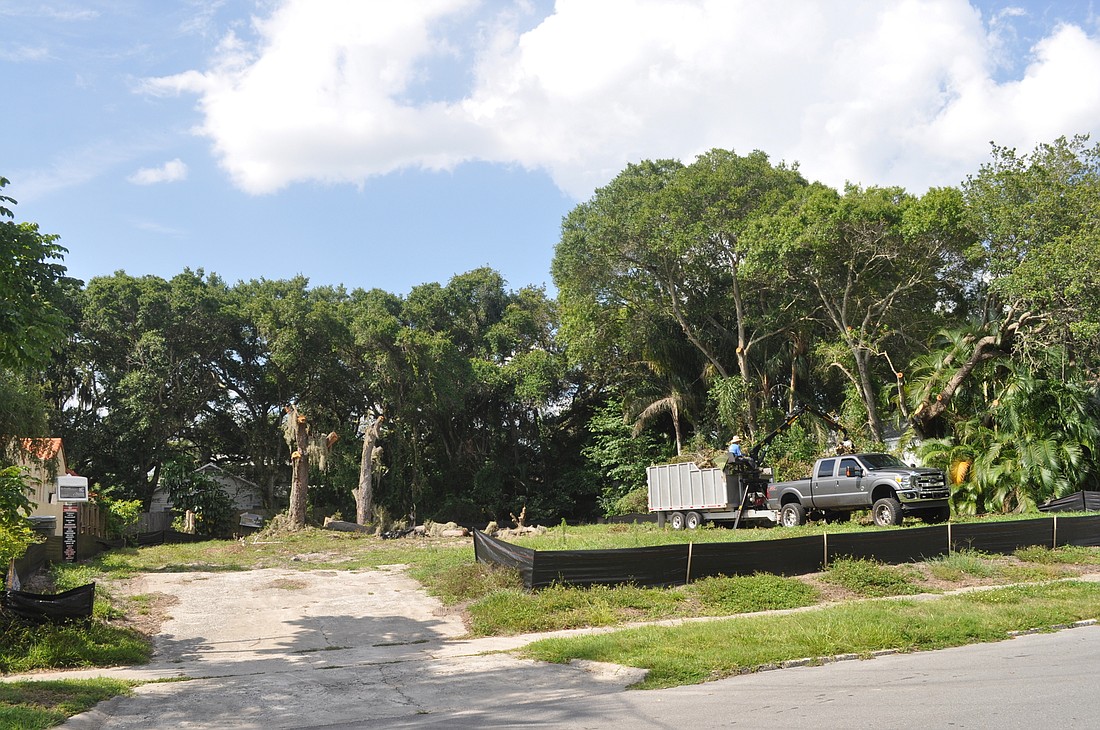- February 16, 2026
-
-
Loading

Loading

Who should decide when and how a property owner can remove a tree from their land?
According to state Sen. Greg Steube, nobody but that property owner.
He introduced a bill to the Legislature this month prohibiting local regulation of private tree removal. If approved, the bill would eliminate tree protection laws in cities and counties throughout Florida.
That’s a source of concern for Sarasota city officials.
The city’s tree ordinance determines which trees residents are allowed to remove from their properties. It requires property owners to obtain permits before cutting down a tree, and it requires them to plant another tree or pay money if they want to remove a tree officials have deemed valuable.
Tree removal has been a high priority issue for residents, with neighborhood activists, developers and planners all advocating for changes to the city’s regulations.
The city has spent nearly three years refining its ordinance, most recently appointing a citizen Tree Advisory Committee to develop recommendations for more effective, balanced guidelines.
Although there’s disagreement regarding the best way to regulate tree removal in the city, Sarasota Mayor Shelli Freeland Eddie said there’s broad consensus on one point: The city should be the one doing the regulating.
Earlier this month, the Coalition of City Neighborhood Associations voiced its opposition to Steube’s proposal. The decision was nearly unanimous, with 22 neighborhoods in support and one abstaining.
Steube, whose office did not return a request for comment, has framed his bill as a defense of property rights. Eddie said city residents — many of whom own property — have demonstrated a desire to keep some rules in place.
“It’s not about removing the rights of private property owners,” Eddie said. “It’s that the particular property owners in our community have said they want this regulation to remain on a local level.”
The members of the Tree Advisory Committee shared similar concerns about the bill. Committee Chairman Shawn Dressler, a landscape architect with planning firm Kimley-Horn, said there were clear incentives for permitting local tree regulation.
“It seems to me, working in a lot of jurisdictions, that I have never practiced in two jurisdictions that have the same exact climate, the same exact set of soil constraints, the same exact set of trees that perform the same way or the same exact set of development pressures,” Dressler said. “I’m not sure I understand what the benefit could be to a local municipality for a (bill) of this kind.”
Some members of the development community see the wisdom in Steube’s proposal, though. Jon Mast, CEO of the Manatee-Sarasota Building Industry Association, said the bill was a natural response to local regulations seen as excessively burdensome.
“I’m in favor of the state helping the local municipalities get out of their own way when it comes to overregulating,” Mast said.
Although he thinks the existing ordinance is too severe, Mast saw the benefit to having some local guidelines for tree planting. He hoped the Tree Advisory Committee would produce new regulations that focused less on restricting the ability to make smaller tree-related modifications to private property.
“It doesn’t seem to me to be fair that a homeowner is harassed by their community and by city staff,” Mast said.
Although the fate of the state bill is outside of their control, the Tree Advisory Committee vowed to stay committed to improving tree regulations for Sarasota.
“To me, there’s only the risk that the state government decides all the work we’re doing here is worthless,” board member and architect Michael Halflants said. “But we should still do the work the best we can, and find a good ordinance that works.”